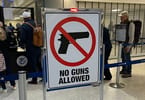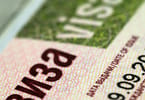Don’t be fooled.
The bankruptcies, mergers and consolidations among the major airlines are going to cost passengers more money and make travel even more of a nightmare than it already is.
It’s Economics 101: Less competition means higher prices, decreased customer service, crowded flights, and serious disruptions in the event of labor disputes or maintenance issues.
In the last few weeks, airline woes have been substantial. 300,000 passengers have had their flights canceled.
This week has been a double whammy week for the public.
More than 4,000 flights have been cancelled for maintenance problems and a number of smaller low cost airlines have gone out of business or gone bankrupt: Oasis, Skybus, ATA, Aloha, MAXjet, and Frontier.
As a result, competition in dozens of cities will disappear and there will be increased pressure on existing airline passengers because of fuller planes and higher prices.The legacy airlines- American, United, Delta, Northwest, and Continental- are frantically plotting increased consolidation. And with the massive clout they wield in Washington, they usually get what they want.
Nobody messes with the major airlines in DC. They are not allowed to fail. When one of them gets into trouble, they “reorganize” and, with large federal loans from Congress, go on as before.
No such largesse applies to smaller low cost airlines.
The US is heading for a two or three airline cartel, which will systematically eliminate all remaining low cost carriers — Southwest, America West, Air Tran, Jet Blue and others — opening the way for astronomical price hikes.
When major airlines eliminate competition from a specific city, prices are higher. A report issued a few years ago by the Department of Transportation found that in dominated hubs, 24.7 million passengers paid, on average, 41% more than their counterparts in markets with low-fare competition. This supports a Consumer Reports Study of 42 million cheaper restricted tickets sold in 1999, which showed leisure passengers paying 10% more for a round trip flights of at least 1600 miles from fortress hub cities.
We know what the future will look like.
Already, when a single carrier dominates a market, prices skyrocket. Travel managers and the traveling public have no bargaining power, planes are always full, and service deteriorates. For example, in a university study done a few years ago, the “fortress hub” dominated by Northwest Airlines in Minneapolis cost passengers an additional $456 million annually, beyond the average cost for comparable flights at non-hubs. (The figure today is probably double that.)
Why? Northwest controls 80% of the flights from Minneapolis. Severin Borenstein at the University of California, Davis, estimated that Northwest’s average ticket price from its monopoly hub was 38% higher than the national average for comparable flights.
Economists call it the “Fortress Hub Premium.” Passengers flying from other fortress hubs (Pittsburgh, Philadelphia, Miami, Denver, Houston, Dallas, Detroit, St. Louis, Atlanta, Memphis, Phoenix) are already paying this exorbitant premium.
If the proposed mergers go through, because of the disappearance of these other airlines, passengers flying out of every other city across the country are going to pay more.
American, United, and Delta are like kids going behind a playground wall and dividing up the marbles for themselves. Without low cost competition, airline giants will hold the traveling public hostage.
The way it works was well documented in a Justice Department antitrust suit against American Airlines several years ago. Federal officials charged that American used the combination of lower fares, wider availability of low-fare seats, and added flights to force several low-fare airlines -Vanguard, Western Pacific, and Sunjet – to end or reduce service in the Dallas market. Once the smaller airlines were forced out, American cancelled flights and raised prices, which they were free to do, with impunity, given their monopoly position.
This kind of predatory behavior is why new airlines have such a difficult time breaking into a market. And it’s the same reason why Southwest and JetBlue often fly from smaller cities or under serviced airports: they don’t want to compete directly with the major airlines.
It doesn’t have to be this way.
In Europe, a slew of new low cost airlines have been thriving. Ryan Air, easyJet, AirBerlin, BMI, WizzAir, Blue Air, Norwegian Air Shuttle, and German Wings offer incredible low prices for leisure travelers (e.g. London to Cologne: one Euro).
But stateside, things aren’t so grand.
Although the new Open Skies Treaty, which allows increased access to American cities for foreign airlines, holds some promise for international flights, there’s little hope for domestic flights. Airlines already charge practically identical prices through secret computer signaling. The only price relief for passengers in the last few years has come from smaller startup carriers like …Southwest, Airbus, Frontier…. and USAir’s rate cuts in their attempt to compete with the behemoths. This competition has kept prices low and increased service.
Airline consolidations are an example of “unchecked airline arrogance and blatant disregard for the principles of competition” said Richard M. Copland, former ASTA president, which strongly opposes the mergers. “It would be the deathblow for any hope of competition in the airline industry.”
“Greed is destroying our national transportation system for the traveling public. If every seat is filled, profits are fat and passengers are fuming, what kind of a national transportation system do you have?” Copland said. “The airlines have shown with their laughable, voluntary self-policing initiative that nothing will change without government intervention.”
Airlines defend their bullying by saying, “It’s a free country. A free market.” They justify their actions by claiming that they have to respond to market pressures, higher fuel charges and lowered prices.
But living in America does not mean that government supported, virtual monopolies should be allowed to crush their competitors. Our free market economic system is built on competition. If airlines want to increase market share, the big guys should have to earn it by winning the business and loyalty of their customers, not by gobbling up competitors or driving them out of business with cutthroat pricing and government loans.
huffingtonpost.com
WHAT TO TAKE AWAY FROM THIS ARTICLE:
- The bankruptcies, mergers and consolidations among the major airlines are going to cost passengers more money and make travel even more of a nightmare than it already is.
- As a result, competition in dozens of cities will disappear and there will be increased pressure on existing airline passengers because of fuller planes and higher prices.
- This supports a Consumer Reports Study of 42 million cheaper restricted tickets sold in 1999, which showed leisure passengers paying 10% more for a round trip flights of at least 1600 miles from fortress hub cities.






















